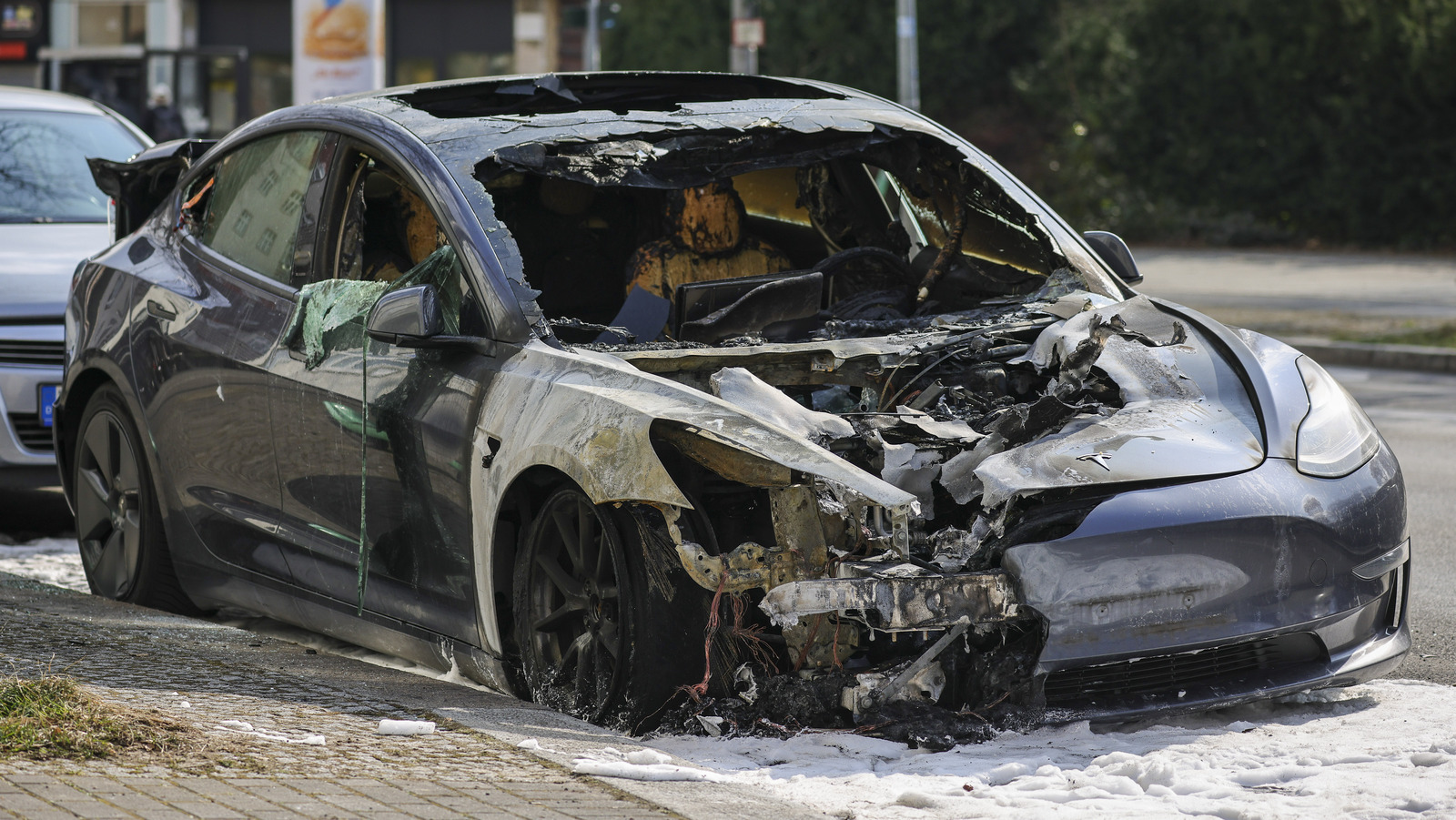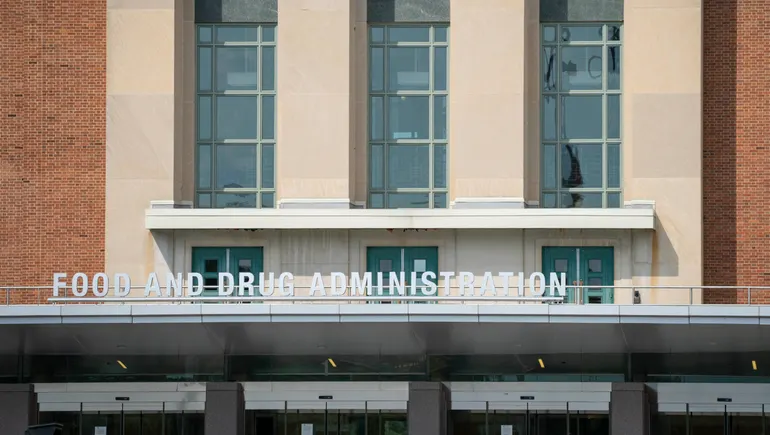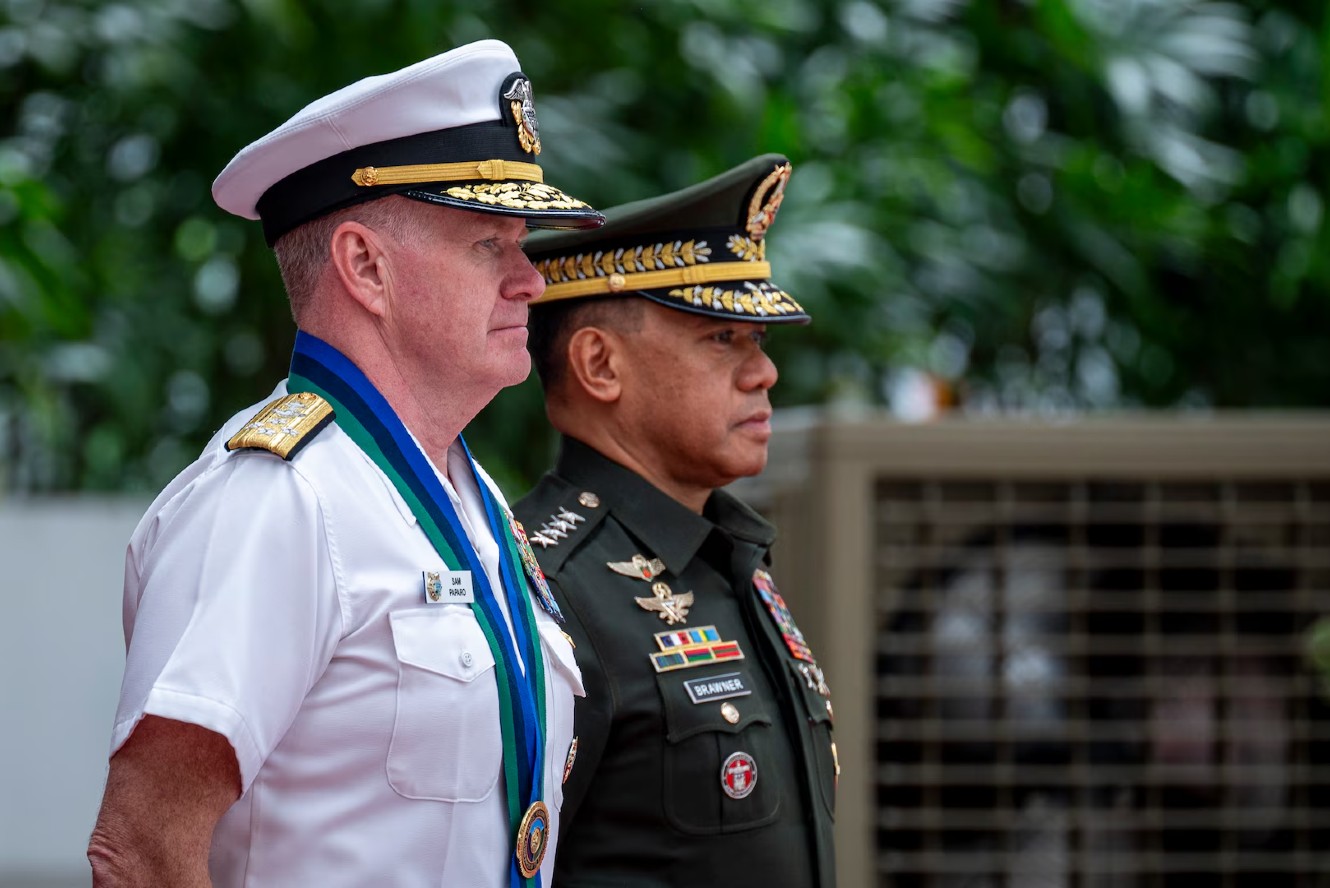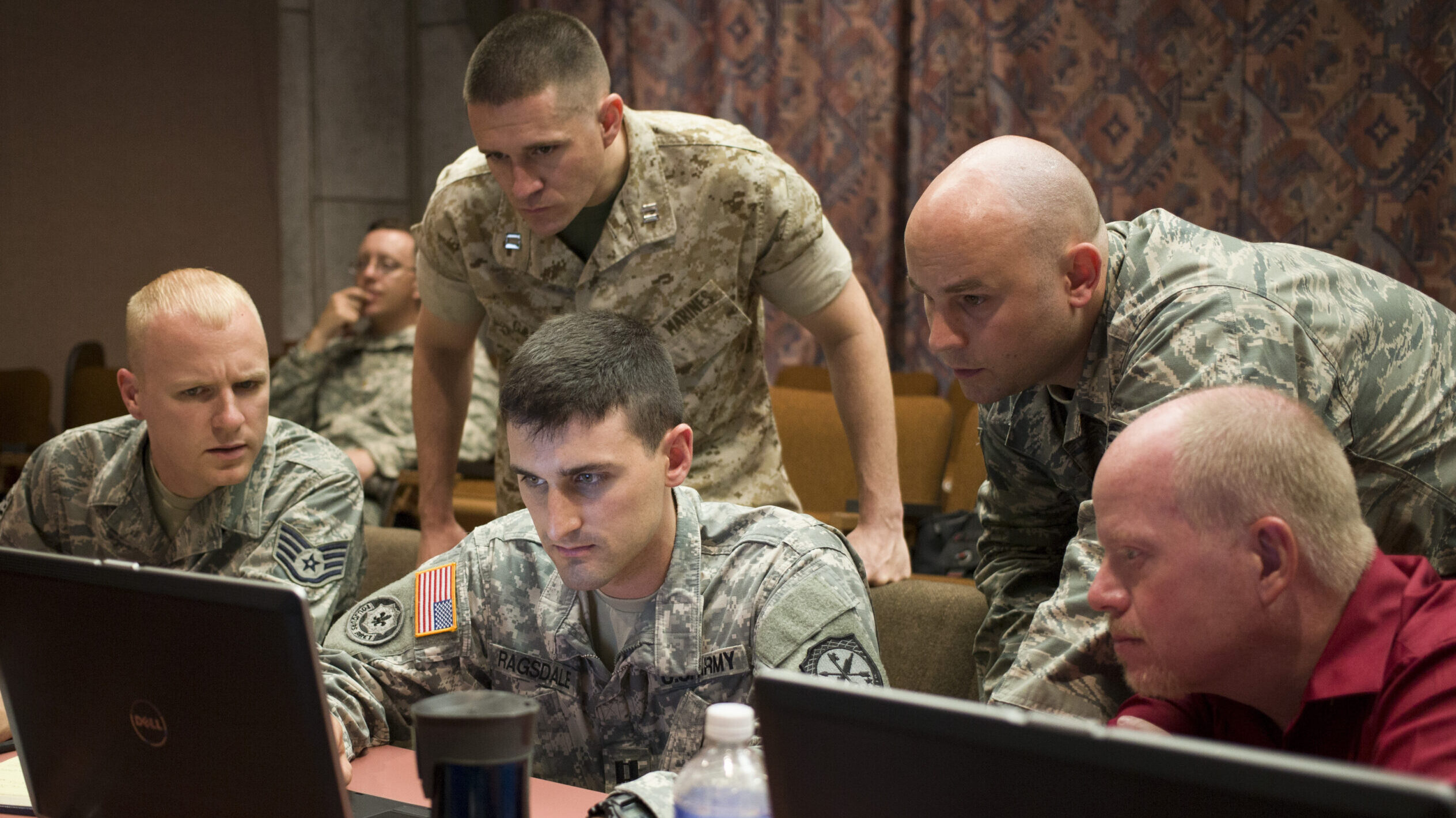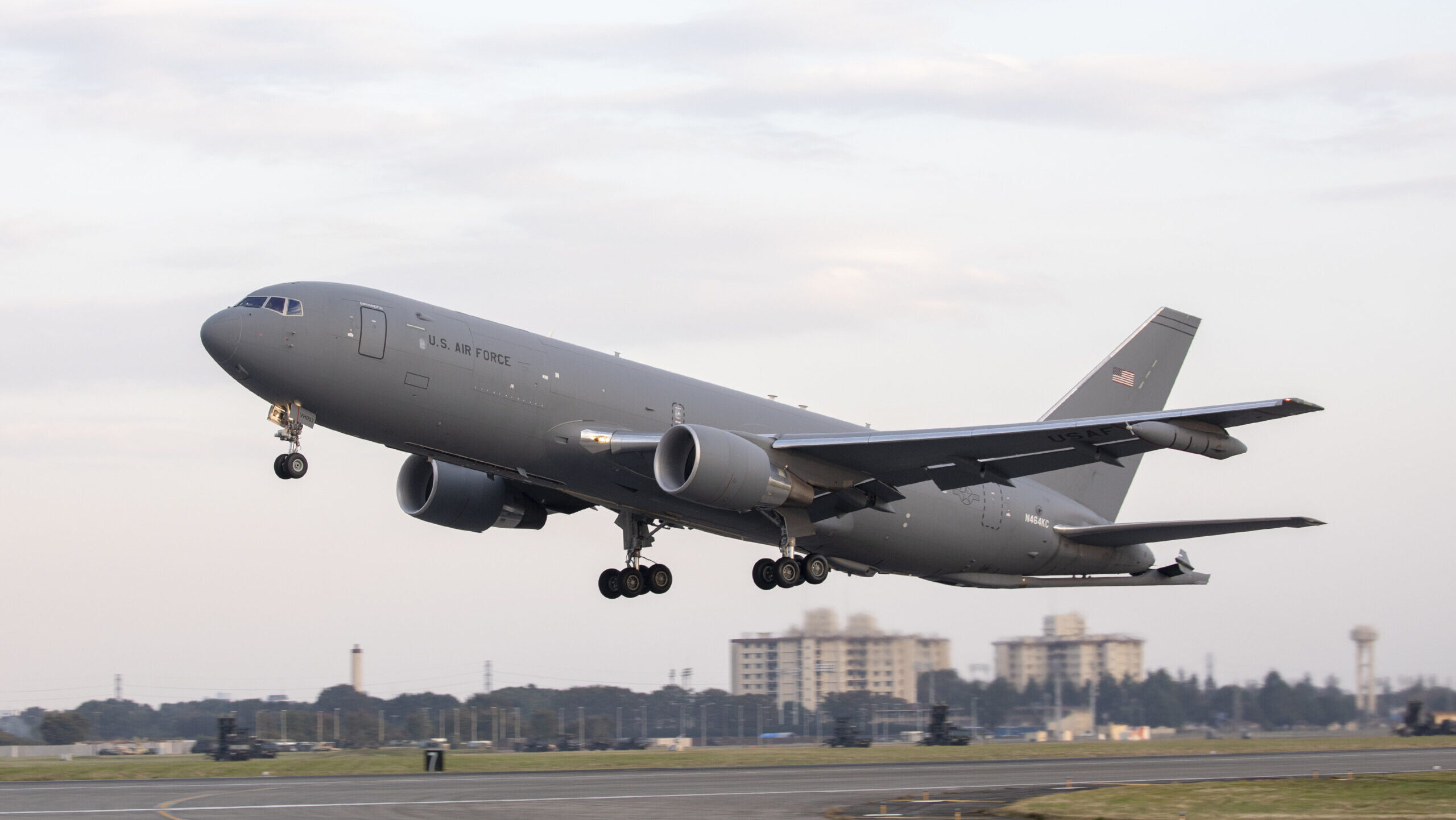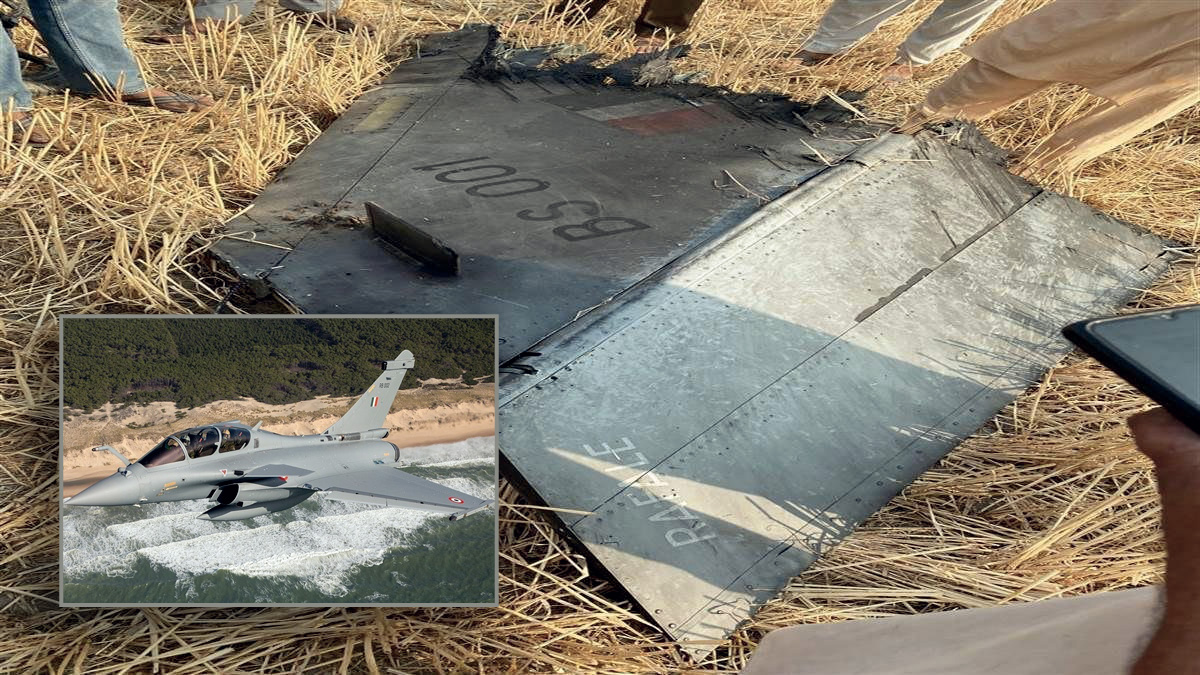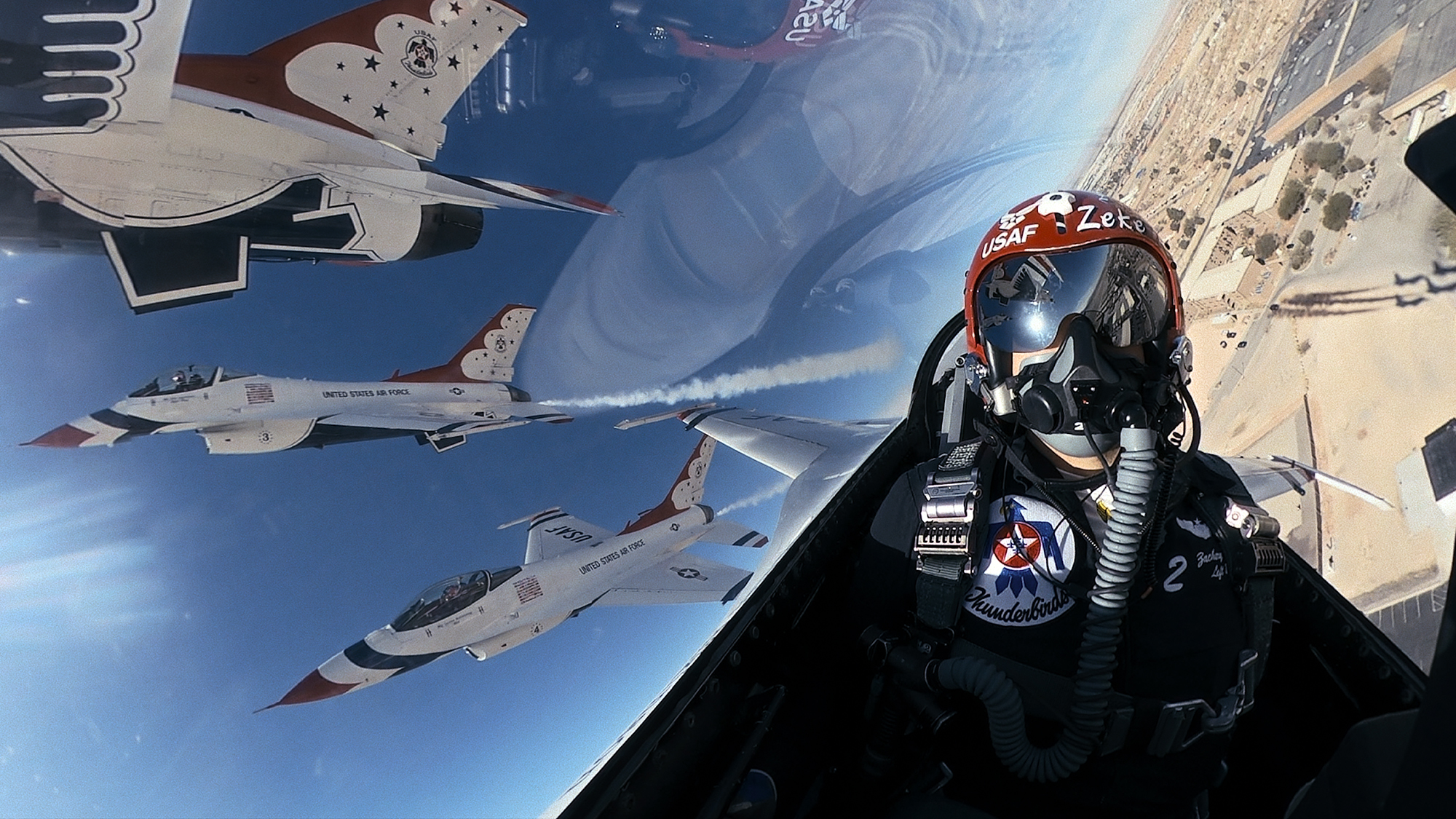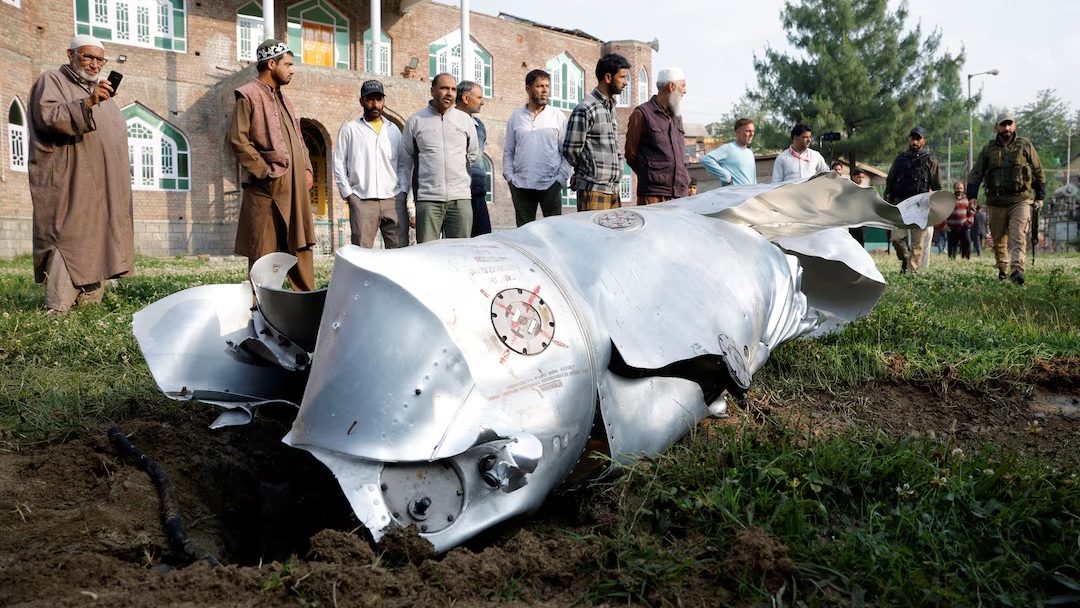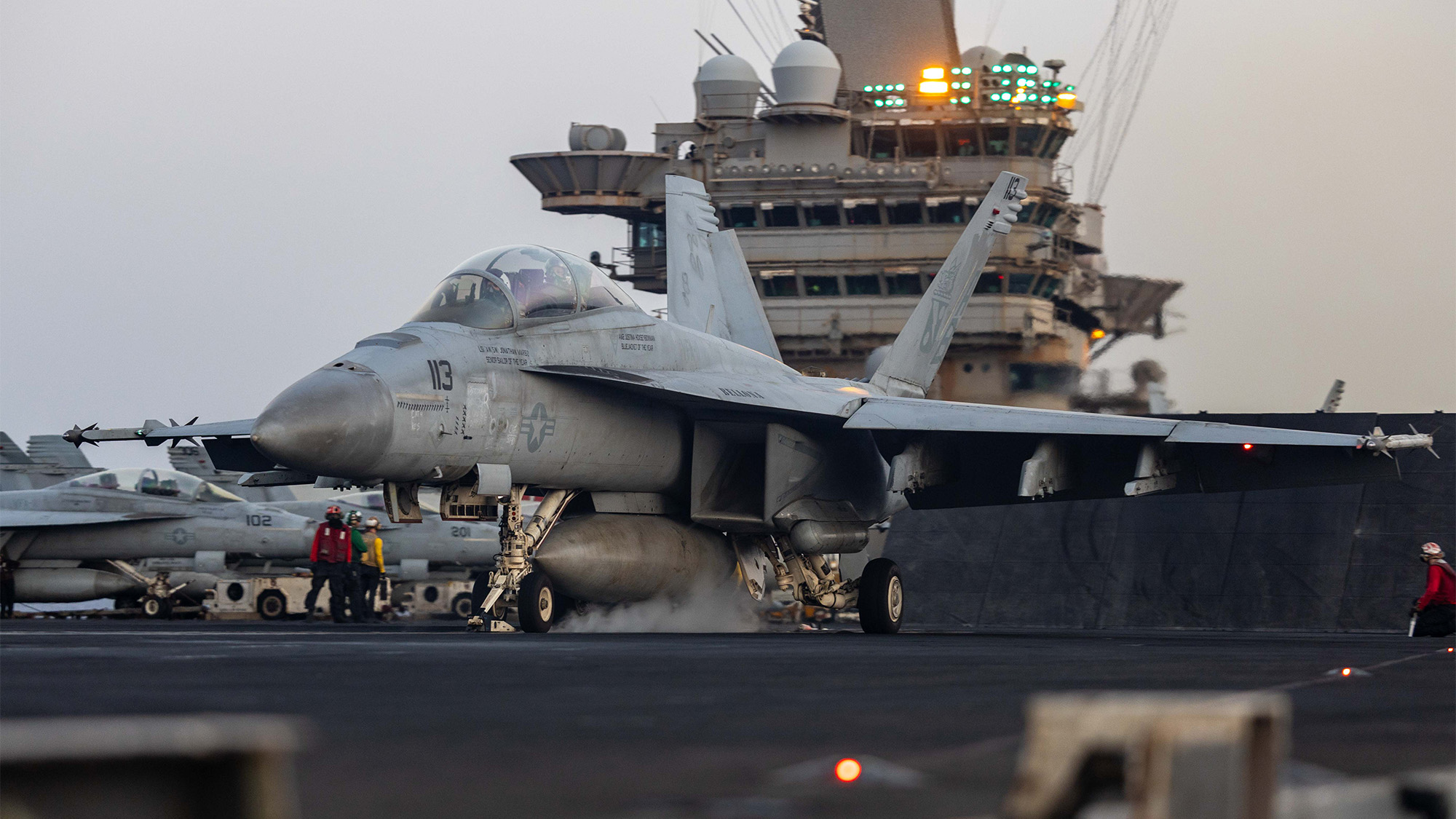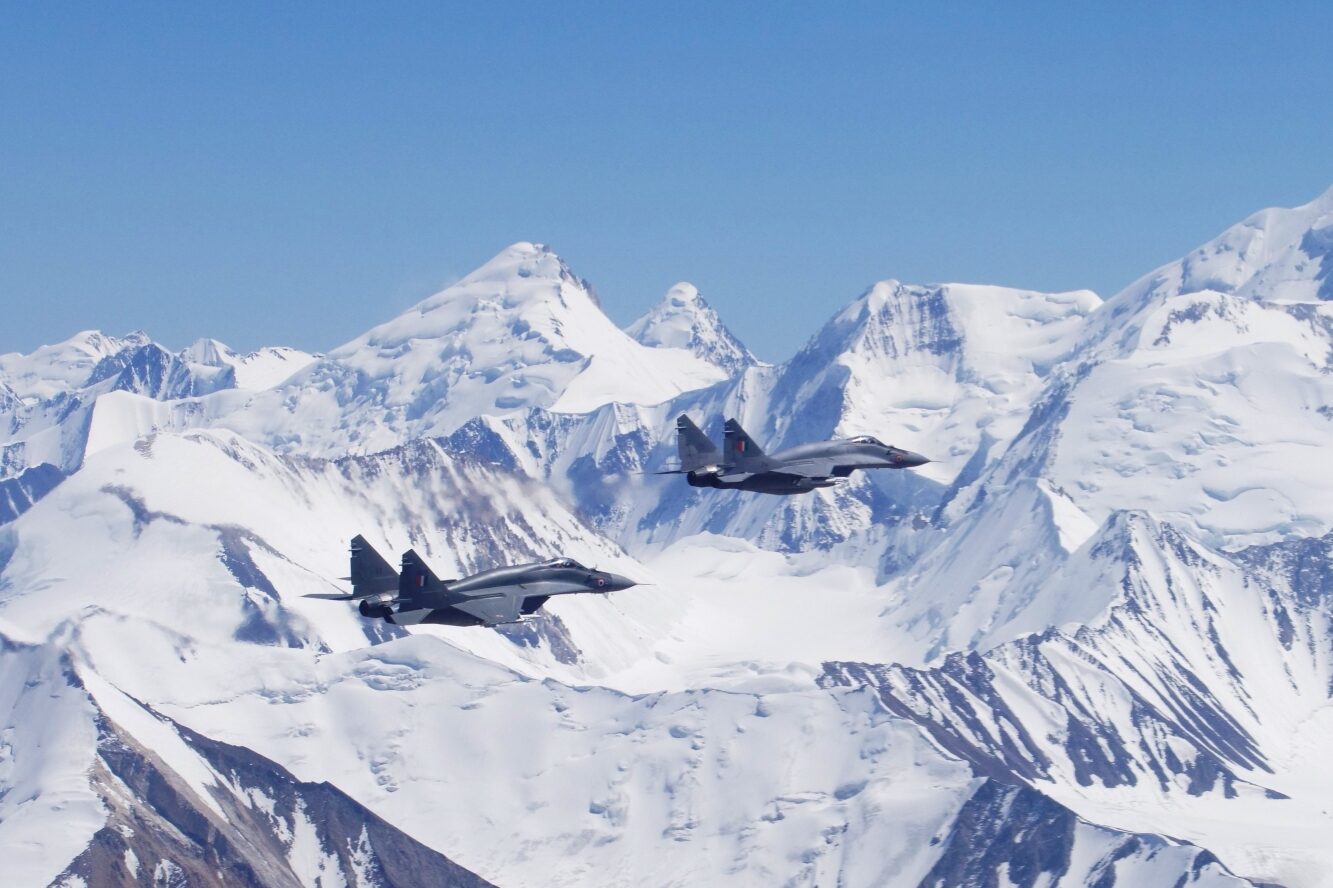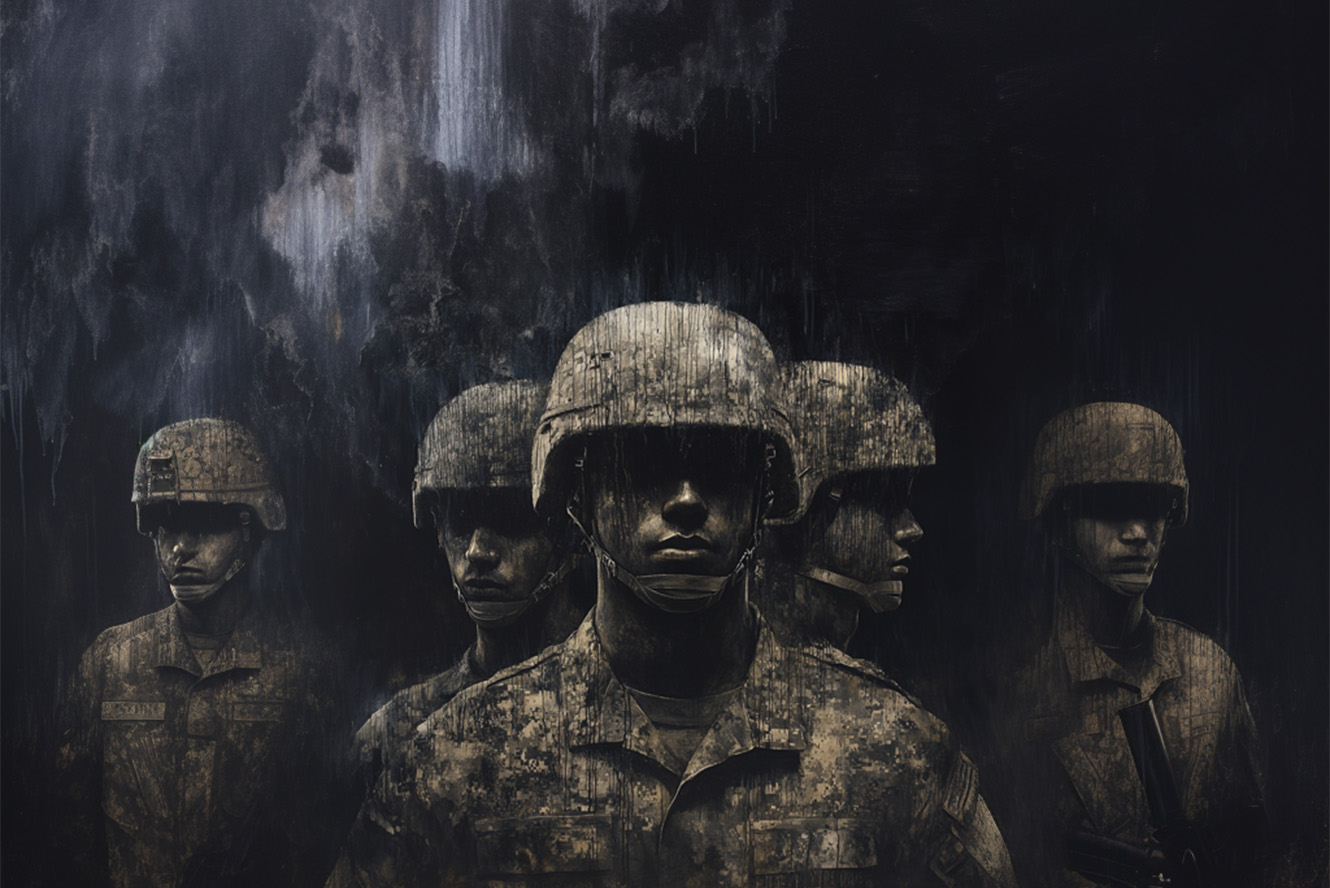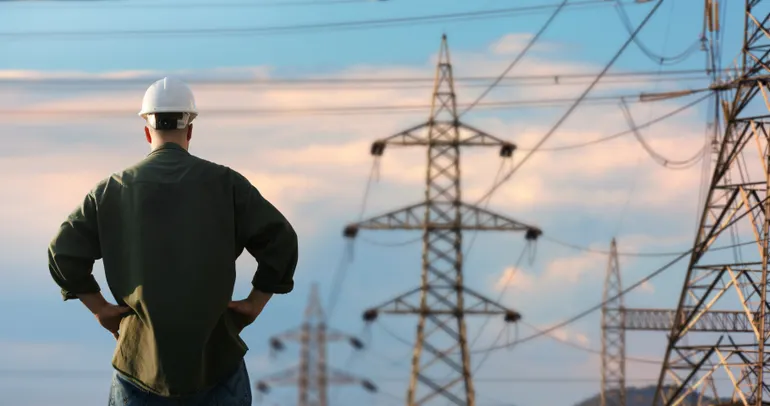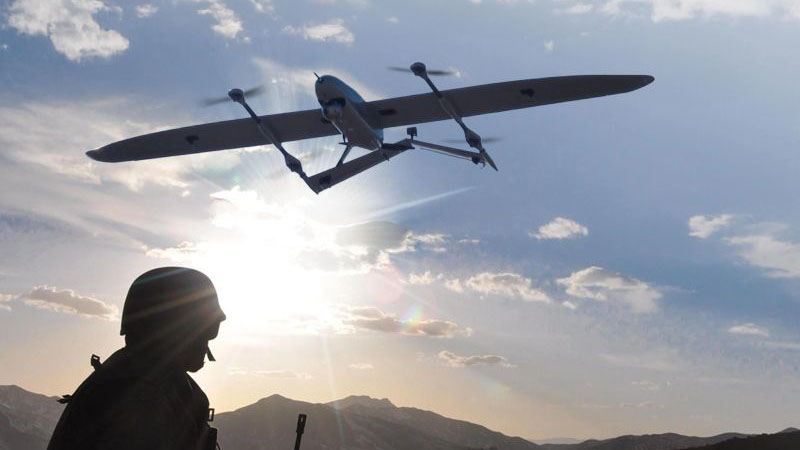Analysts say India and Pakistan know how to de-escalate — but will they?
“Now India’s response, both verbal and written, says and underscores the point that these attacks are proportionate,” said Harsh Pant of the Delhi-based Observer Research Foundation. “They are very targeted and precise, and they do not target any Pakistani military installations.”


Residents look at a wreckage of an unknown aircraft in Wuyan area of Pampore, about 15kms from Srinagar. India launched “Operation Sindoor”, striking nine sites in Pakistan. Pakistan reports missile attacks on six locations, killing at least eight and injuring 35, calling it an “act of war.” (Photo by Saqib Majeed/SOPA Images/LightRocket via Getty Images)
SYDNEY — After a night that saw India strike nine targets in Pakistani-claimed territory and claims that Indian jets were shot down, the two nuclear-armed states appear to be signaling that neither side wants to escalate the situation further — a good sign, but one that still leaves the region on tenterhooks, according to analysts.
India acted to retaliate against Pakistan for what Delhi claimed was Islamabad’s support for terrorists who killed 26 tourists on April 22 in India-administered Kashmir. In today’s strikes, by India, 26 civilians were killed and 46 wounded, according to a Pakistan military spokesperson.
Pakistan claimed it downed five Indian aircraft; India has not confirmed any such losses, but multiple media reports indicate that two French-made fighter jets, either Mirage or Rafales, were likely downed. The Indian army has said that artillery bombardments by Pakistan killed 15 civilians and injured another 43 since Tuesday night.
“Our intelligence monitoring of Pakistan-based terrorist modules indicated that further attacks against India were impending. There was thus a compulsion both to deter and to pre-empt,” Indian Foreign Secretary Vikram Misri told a briefing today.
“These actions were measured, non-escalatory, proportionate, and responsible,” Misri said, in an apparent attempt to reassure Pakistan that India did not plan to escalate its military actions.
Three analysts told Breaking Defense that both countries have extensive experience managing each other’s expectations and the levels of violence involved.
“Now India’s response, both verbal and written, says and underscores the point that these attacks are proportionate,” said Harsh Pant of the Delhi-based Observer Research Foundation. “They are very targeted and precise, and they do not target any Pakistani military installations.”
Since 2016, India has tried to build around the idea of “surgical strikes” as a response to Pakistan, something Pant described as building a structure of deterrence that both sides understand.
A Singapore-based analyst, Ian Chong, told Breaking Defense in an email that “India and Pakistan have significant experience handling escalation with each other, but each situation is not exactly the same.”
That may mean they need outside pressure “to avoid the situation unraveling out of control” especially since they both have domestic “incentive to show resolve to each other,” Chong said.

An infographic titled “Military capabilities of India and Pakistan” created in Ankara, Turkiye on May 7, 2025. (Photo by Yasin Demirci/Anadolu via Getty Images)
The third analyst, Kim Heriot-Darragh, said “It’s not in India or Pakistan’s interest to allow this to escalate — and their respective militaries are broadly familiar with each other’s capabilities and doctrine, which helps limit the potential for unintended escalation.”
At the same time, Heriot-Darragh, a fellow at the India Institute at the University of Melbourne, cautioned that “events like this move fast, and the international community shouldn’t be complacent about the potential for this to worsen before it improves.”
He reinforced the idea that “India’s strikes were calibrated to signal that there are costs for Pakistan enabling or benefitting from terrorist activities in support of its own objectives – and to fulfill domestic Indian expectations for a muscular response. But it has also been mindful of the need not to squander international support, or target the Pakistani military, which would pose a greater risk of escalation.”
Regional Response
Even putting aside the concerns that both states are nuclear armed, any expanded conflict between Pakistan and India will be watched closely by other regional actors.
Should the fighting escalate in coming days and spill over to the Indian Ocean and begin to threaten trade routes, Chong said Australia, Japan, and South Korea are “more likely to try to encourage some resolution to Indian-Pakistan tensions.” But, he noted, “they have limited leverage on India and Pakistan.”
Already, some regional leaders have weighed in urging calm.
Japan’s Chief Cabinet Secretary Yoshimasa Hayashi said his country has expressed “strong concern that this situation may lead to further retaliatory exchanges and escalate into a full-scale military conflict.” Japan’s defense minister met with India’s defense minister just two days before, during which the two countries pledged to increase defense cooperation. The two sides will create a new consultative body “to further strengthen cooperation and coordination in the defense field,” Defense Minister Gen Nakatani said in a statement.
“I am monitoring the situation between India and Pakistan closely,” American Secretary of State Marco Rubio said. “I echo @POTUS’s comments earlier today that this hopefully ends quickly and will continue to engage both Indian and Pakistani leadership towards a peaceful resolution.”
The biggest wild card in all this could be Beijing.
Should China take advantage of India’s preoccupation with Pakistan to improve its position along the Actual Line of Control that marks the divide between the two countries high in the Himalayas, that would greatly complicate the situation.
“The question is whether there will be spillover into the Indian Ocean and if Beijing decides to take advantage of the situation to press its own claims against India. I think the latter situation, which is potentially quite escalatory, is less likely at this point. Beijing has a lot to handle in its trade war with the United States and in handling its own economy,” Chong, associate professor at the National University of Singapore, said.
In a thread on X, Andrew Small, a senior fellow with the German Marshall Fund, said he expects that, “China won’t want to be too visibly embroiled in Pak response (beyond unavoidable fact that they will be using Chinese weapons): it’s trying to stabilize ties with India now (as w/others) to consolidate China’s position to face the US so will tread slightly delicately.”
But, he said, China will want to show support for Pakistan broadly, as a message to others that Beijing will stand by its friends.
“China won’t want significant escalation (few do) but I suspect won’t mind the chance to test Chinese against Western weapons on India’s side,” Small, the author of a 2015 book on Chinese-Pakistani relations, concluded. “I doubt Beijing will see the Indian strikes as excessively escalatory.”
So far, at least, China is calling for both sides to exercise restraint, while first criticizing India’s strikes.
“China finds India’s military operation early this morning regrettable. We are concerned about the ongoing situation,” Foreign Ministry spokesman Lin Jian said in answer to a reporter’s question in Beijing. “We urge both sides to act in the larger interest of peace and stability, remain calm, exercise restraint and refrain from taking actions that may further complicate the situation. We stand ready to work with the international community to continue to play a constructive role in the deescalation of the ongoing tensions.”


































